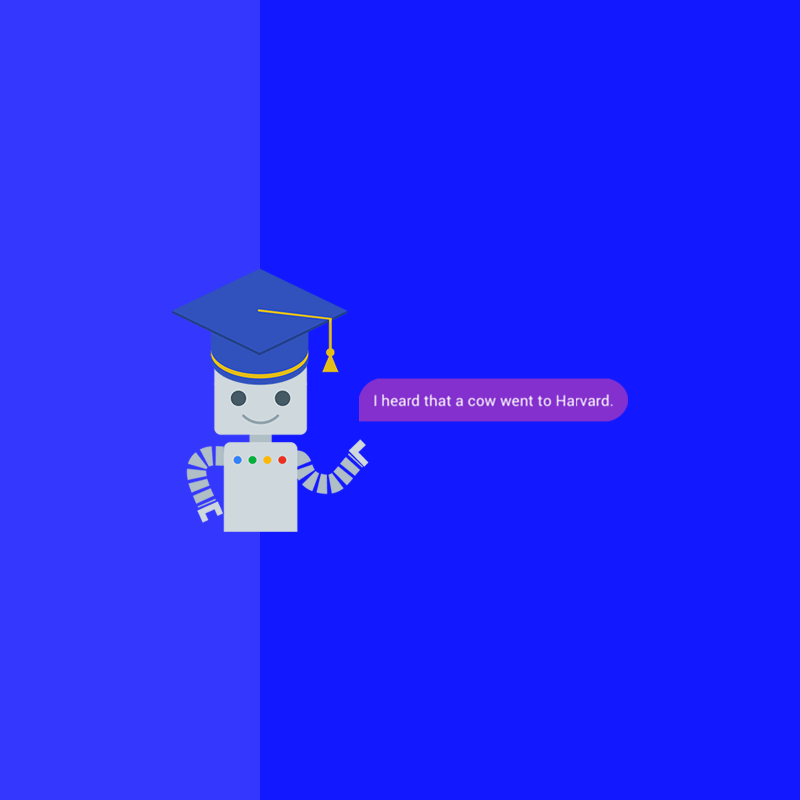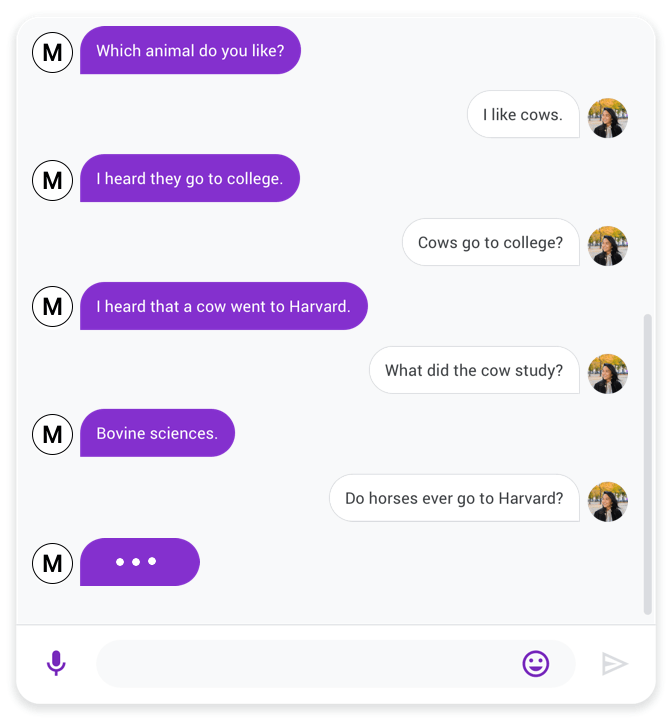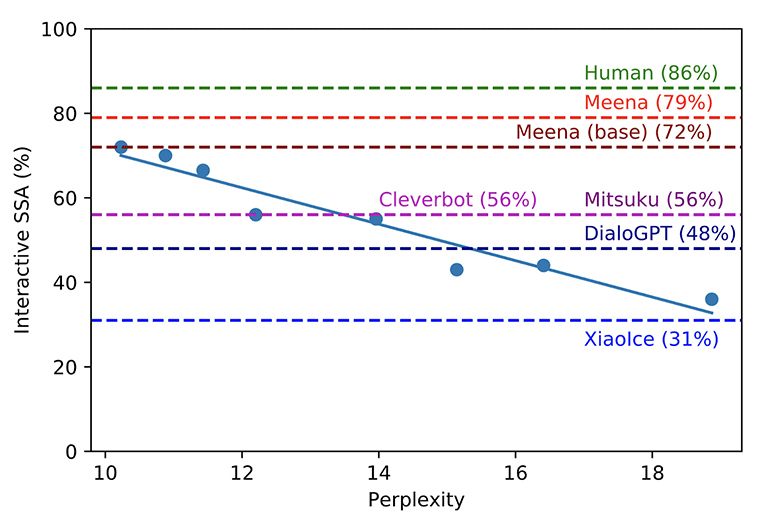
Chatbots have came a long way. But even with technology that is evolving, many conversations with the bots aren't satisfactory.
As software powered by AI, chatbots can conduct conversation via auditory or textual methods, designed to simulate how a human would behave as a conversational partner.
However. no matter how good they have become, they are far from being smart. This is because their conversational skill are quite limited. As a matter of fact, chatbots are specialized to only certain topics, and couldn't venture beyond what they are created for.
Google is one of the players in the field, and it wants to change that connotation, at least for a bit.
And that is by introducing 'Meena', an AI-powered chatbot that can talk to its conversation partner about practically anything.
Google said that Meena's end-to-end neural conversational model has been trained with 2.6 billion parameters, 40 billion words, and a 341GB worth of text data that include social media conversations.
As a result, according to Google, Meena is capable of chatting with people better than any AI generator out there.

" ... current open-domain chatbots have a critical flaw — they often don’t make sense," said Google.
But Meena is designed to speak like humans, behave and respond like humans, for at least to a certain degree, and better than other chatbots Google compared it with.
To make this happen, Meena has been trained using seq2seq, a variation of Google’s Transformer, which uses a neural network that compares words in a paragraph to each other to understand the relationship between them.
Meena here has a single evolved transformer encoder block and 13 evolved transformer decoder blocks.
The encoder is responsible for processing the conversation context to help Meena understand what has already been said in the conversation, whereas the decoder then uses that information to create an actual response. Through tuning the hyper-parameters, Google discovered that a more powerful decoder was the key to higher conversational quality.
Google claims Meena has 1.7x more model capacity and was trained on 8.5x more data than OpenAI’s GTP-2.
"We show that Meena can conduct conversations that are more sensible and specific than existing state-of-the-art chatbots," boasts Google.
To showcase Meena's ability, the team of researchers even proposed a new metric called Sensibleness and Specificity Average (SSA) to measure how sensible and specific a conversation or a response is.

According to Google on its blog post:
Meena is designed to learn and to respond sensibly to a given conversational context.
According to the researchers' paper, the training objective is to minimize perplexity.
Researchers in the AI field have long sought for an automatic evaluation metric that correlates with more accurate, human evaluation. Doing so would enable them to develop models faster. But until this time, finding such an automatic metric has been challenging.
But here, the researchers at Google found that perplexity is already the automatic metric that is readily available to any neural seq2seq model. It exhibits a strong correlation with human evaluation, such as the SSA value. Perplexity measures the uncertainty of a language model.
According to the researchers, the lower the perplexity, the better the SSA score for the model, the more confident the model is in generating the next token (character, subword, or word).

This is not the first time Google has experimented with chatbots.
What began in 2015, the company continuously develop and create language models to understand the context of a conversation in a better manner.
The most famous Google has, is Google Assistant. The AI-powered virtual assistant is primarily available on mobile and smart home devices. Unlike the company's previous virtual assistant, Google Now, the Google Assistant can engage in two-way conversations.
It debuted in 2016 as part of the now-defunct Google's messaging app Allo and its voice-activated speaker Google Home. It was then made exclusive to the Pixel and Pixel XL smartphones, before Google finally released it on other Android devices in 2017, including third-party smartphones and Android Wear (Wear OS).
Google was so proud of this AI-bot that Google even released Assistant as a standalone app on the iOS operating system in May 2017, alongside the announcement of a software development kit in April 2017.
The functionality of the Assistant can also be enhanced by third-party developers.
Google Assistant is considered one of the best in the market, and able to maintain a conversation to a certain degree. But it still a far cry from perfect.
With Meena, Google is like experimenting what AI can do by tweaking and training it under different datasets.
Besides Google, other companies like Amazon and Microsoft are also making efforts to have more conversational AI.